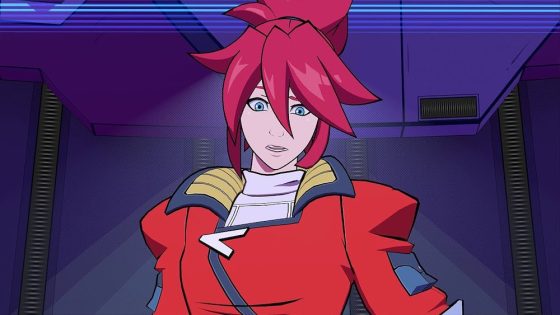SAG-AFTRA is trying to avoid another strike, but the actors union nonetheless has many bones to pick with video game companies in its latest contract negotiations.
Among SAG-AFTRA’s key sticking points is trying to get the gaming companies to agree to protections on the ethical use of generative AI, which was one of the biggest issues the union fought hard for in its talks with TV and film studios last year.
But it’s looking less likely that the video game giants are going to cave — and more likely SAG-AFTRA will once again enact a work stoppage, this time focused on actors performing in game voice-over roles.
“Obviously, strikes are last resort for us, always, because they cause great disruption, not only to our own members, to the companies, but to other workers and other people who are part of the industry,” SAG-AFTRA chief negotiator Duncan Crabtree-Ireland told Variety in an interview during this week’s Game Developers Conference in San Francisco. “So we take that responsibility very, very seriously. And it’s never a first choice. We got the strike authorization on this contract many months ago, back last fall. And the strike authorization was voted up by our members by a 98% ‘yes’ vote.”
In the six months that have passed since that vote in September, Crabtree-Ireland, SAG-AFTRA’s interactive chair Sarah Elmaleh and the rest of the union’s team have been pushing along “to find a path to a deal” in hopes of not needing to act on that nearly unanimous decision, Crabtree-Ireland said. “But in the end, the companies really have to move off of this idea that these protections can be limited to just a subset of the performers who work for them, because that’s never going to be something that a union or any collective of performers is going to be willing to agree to,” he added.
Crabtree-Ireland said “those inconsistencies” will “come back to bite” the video game companies if a deal is not reached because of potential public reaction. “The consumers who are consuming data are going to say, ‘Well, why are you saying you’re an ethical and responsible user of AI while at the same time denying AI protections to some of the people who helped make these games possible?’” Crabtree-Ireland said.
While SAG-AFTRA does not currently have a timetable in place for when it would end negotiations and move on to a strike — despite the fact the current contract is already expired — now could be the time when Hollywood studios might be able to step in and move things along with the gaming companies.
That’s because after the deal was struck between the actors and the studios and streamers last year, Crabtree-Ireland “definitely noticed some movement” in the “position of some of the game companies” on the new contract terms. And the fact that there are Hollywood studios that have sister gaming studios within their larger media congloms means there is an opportunity for execs from one division to put pressure on execs from the other side to make a deal.
It’s also largely to the benefit of the TV and film side to avoid any halt in game development and production, as the studios are relying more and more on adapting video game IP to fuel their content pipelines with the high rate of success for shows like “The Last of Us.”
“Some of them do have that overlap, like Warner Bros. Discovery and Disney, but then others, including some of the biggest like Activision Blizzard, Electronic Arts, don’t have a studio or streamer direct counterpart,” said Crabtree-Ireland. “And so it’s a complicated marketing group. I think it can have a positive influence, but I don’t think it’s dispositive. And that’s why we are in this situation right now. But we’re doing everything we can to really convince and also bring pressure on these companies so that they will actually come back to the table and make a fair deal for all of the performers who work for them.”
While all of this is going on, there is rising talk among the employees at video game companies about unionizing amid widespread layoffs in the industry, something SAG-AFTRA’s Elmaleh — who has been deep in the trenches on the interactive (which includes face, motion and voice actors) negotiations — fully supports.
“SAG-AFTRA isn’t unionizing game developers as a category, we’re a performers union, but I believe that workers deserve agency in determining the really crucial elements of their work and things like wages, working conditions, all the things that a union has a special kind of influence and enforceability around in building long-term sustainable careers,” Elmaleh told Variety. “I think it’s really down to workers to advocate for sustainability in our careers because companies have a different goal. Their goal is not on the same scope, or the same timeline or the same individual focus. So there must be some kind of counterbalance that’s worker driven.”
Elmaleh is a longtime video game performer with credits in “High-Fi Rush” (pictured above), “Final Fantasy XV,” “For Honor,” “Anthem,” “Gone Home” and “Where the Water Tastes Like Wine,” with a deep connection to the game developers who make the work she is featured in.
“As someone who has come to the Game Developers Conference since 2011 and who has immersed myself in game development, who is just in awe of my game developer collaborators — how smart they are, how creative they are, how grounded and approachable they are … I think they’re really extraordinary people and my heart breaks to see them suffer in this way and be subject to winds of change that seem kind of maddening and unjust at times,” she said. “And so I wish for them any tool that they seek to take up, any path that they find to self-determination or self-protection in a way that gives them longer careers, healthier lives and gives us more games to enjoy, as someone who plays them, as well. I wish developers every bit of luck and solidarity and I’m here for resources and support and shared action whenever I can.”
Source Agencies




